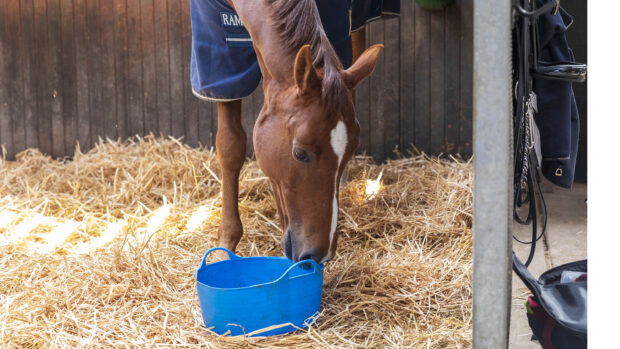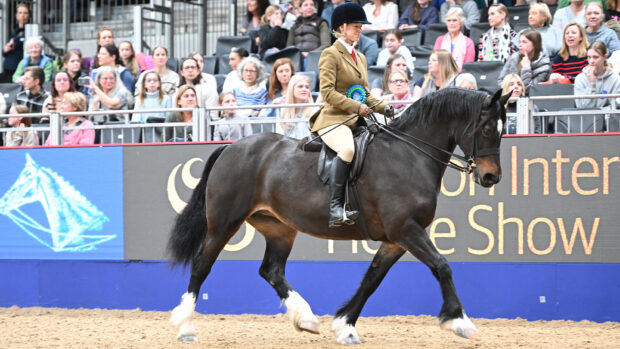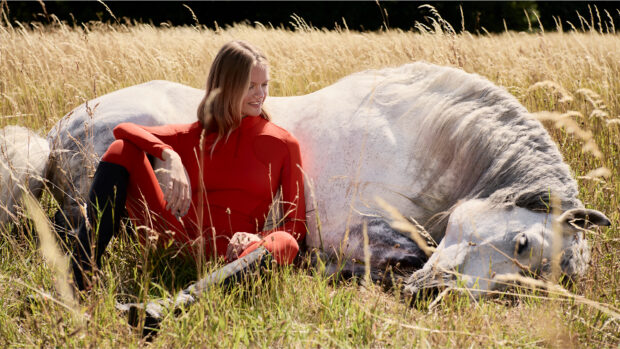If you’re sat there wondering how to stop a dog chewing his bed, the chances are you’ve returned home to a scene of fluffy destruction with a guilty-looking dog sat right in the middle. You may have been wondering how to stop your dog chewing everything for a while – and what really need in this situation is one of the best chew-proof dog beds. However, while a new bed might solve your repeat purchasing problem, it won’t get to the root cause.
Frustration aside, bed-chewing isn’t usually a habit adopted for the sake of it, and can be a sign of a need your pup needs addressing. Above all, it’s certainly something to nip in the bud for a number of reasons, especially because your dog may accidentally ingest the fabric or stuffing. He could cause himself a mischief, and you’ll be out of pocket replacing bed after bed.
Why is my dog chewing his bed?
If your dog’s a puppy, he could be teething. Gnawing can help relieve dental pain, so if you want to help your teething puppy, consider one of the best teething toys for puppies to redirect his focus and help make him more comfortable. If you think there is a chance you dog is experiencing dental or digestive discomfort unrelated to teething, consult your vet.
However, there could be other environmental factors at play. Your dog chewing his bed could be a sign that he lacks stimulation. This could be mental, physical, or a combination – here are some ideas for how to keep a puppy entertained.
In addition, consider if your pooch could be chewing his bed due to anxiety. Dogs get anxious for a variety of reasons, for example, due to fearfulness or being left alone (separation anxiety). Research how to help dog anxiety and, if need be, consult the advice of a canine behaviourist.
How to stop your dog chewing his bed
1. Get a sturdier bed
When it comes to chewers, some are extremely compelled by soft, plush and fluffy items. Just think how quickly a determined dog can deconstruct a soft toy!
Whether your dog loves to chew or his bed simply looks a little worse for wear, he could benefit from one of the best dog beds for chewers. These beds are made from sturdy materials such as canvas or PVC and while they may not look as soft and cosy, they get the job done. Easy to wipe clean and tough enough to withstand persistent chewing, a heavy-duty bed could be a deterrent in itself. After all, what’s the fun in trying to destroy something that refuses to be destroyed?
2. Get him thinking and moving
Dogs hate to be bored, so be honest with yourself about his routine. Is he getting enough mental and physical exercise over the course of the day? If you think this area of your dog’s routine could benefit from some improvement, this is a great place to start.
If it’s brain training he wants, aim to add a few short, manageable sessions a day to work on his skills, such as tricks, recall and fetching. Alternatively, you could look at picking up one of the best dog puzzle toys to help engage his brain.
On the other hand, if your pooch is bouncing off the walls and could do with tiring out, it could be time to up his walking. Pushed for time? Try a couple of shorter, more intense exercise sessions in addition to his daily walk. This could be retrieving a ball (and if your pooch doesn’t, there’s no better time to learn how to teach a dog to fetch) or playing a chasing game with a flirt pole (like this one on Amazon). If you use a flirt pole, remember to let your dog occasionally catch the lure on the end of the string. If he never gets his prize, he could lose enthusiasm or confidence.

ChuckIt! Ultra Ball | Amazon
This ball is super-tough and bouncy as well as highly visible. Perfect for fetch and unlikely to disappear in the grass!

Extra Select Gun Dog Hand Throwing Dummy | Amazon
This dummy is great for teaching fetch and also comes in different weights to suit your canine pal.

ASOCEA Flirt Pole for dogs | Amazon
Comes with an extendable teaser wand and two replacement rope chew toys that attach to the end.
3. Offer him something better
Diversion tactics are often successfully employed with a dog chewing his bed. Similar to teaching a resource-guarding pup to swap his toy for a higher reward, this entails offering your chomping chum something more appropriate to chew, or an enticing treat.
If your pup’s a persistent chewer, try redirecting his chewing with one of the toughest dog chew toys, or treat him to one of the best long-lasting dog chews to tempt his active jaws away from his bed.
4. Use an anti-chew spray
Need something to get you started? The best sprays to stop dogs chewing could be the just the ticket.
These sprays are a pet-safe deterrant that can be applied to any surface – not just your pup’s snoozing spot. They’re usually naturally flavoured with something unpleasant that will literally leave a bitter taste in your dog’s mouth. This should help discourage him from gnawing on things he shouldn’t.
You can spritz anti-chewing sprays on pretty much anything – shoes, table legs, skirting boards, the list goes on. In fact, some sprays can also be applied to your dog’s body parts or wounds to stop him chomping on them. Just make sure to patch test it first, applying it sparingly to a small, unaffected area on your dog and waiting for 24 hours.
When it comes to habitual chewers, though, there are no real quick fixes. An anti-chew spray will always be most effective when used alongside proper training. Think of them as more of a useful tool than a complete solution.

KinderPet Anti-Chew Spray | Amazon
This bitter apple spray is effective for dogs who can’t stomach the taste

Johnson’s Anti Chew Training Spray | Amazon
This effective spray is also safe for use on your pet to help stop him chewing body parts or wounds.
5. Train him well
When we bring our pups home for the first time, it’s up to us to teach them the house rules. Most owners want to house train their dog or teach them that the sofa is off limits (which means learning how to keep dogs off the couch). Therefore, if your dog chewing his bed is a no-no, he needs to learn this rule too.
For startes, you need to reinforce a voice command designed to signal to your dog that the behaviour he’s performing is not desired. This should stop him in his tracks and can be followed up with a reward. Ideally, in the training stages, this would be a treat he particularly enjoys. Decide on a word to use consistently (‘no’ or ‘off’ are good ones to try) and ensure you’re using it firmly and with intention. It can be beneficial to add a gesture to help get and keep your dog’s attention. Plus, avoid undoing your hard work by leaving your dog unsupervised with his bed before the habit had ceased.
Finally, as frustrating as bed-chewing can be, it’s important not to negatively reinforce the behaviour by shouting at your pup. Not only can this create fear and anxiety in your pooch, but also could lead to increased destructive behaviour. If you feel like you’re chasing your tail, consulting a dog behaviourist or trainer is always an option. No one is expected to know how to train a dog on their own – it takes patience, skill and perseverance, so don’t feel you need to struggle on solo.
What age do dogs stop chewing beds?
The first thing to remember that dogs often chew in response to environmental stressors. Equally important is that dogs with no reliable ‘no’ or ‘off’ command cannot easily be told that bed chewing is not desired behaviour. Consequently, there is no upper age limit for a dog chewing his bed.
Be that as it may, chewing is generally more common in puppies under six months as they learn about their environment and go through teething. You might see a reduction in bed chewing after this time, but there can be no guarantees the behaviour will stop completely.
You may also be interested in…

6 dog beds for “enthusiastic” chewers that are made to last

How to stop your dog chewing your home to shreds

Teeth off! The best sprays to stop dogs chewing

Chews well: the best safe dog toys for aggressive chewers

Subscribe to Horse & Hound magazine today – and enjoy unlimited website access all year round
Horse & Hound magazine, out every Thursday, is packed with all the latest news and reports, as well as interviews, specials, nostalgia, vet and training advice. Find how you can enjoy the magazine delivered to your door every week, plus options to upgrade your subscription to access our online service that brings you breaking news and reports as well as other benefits.




